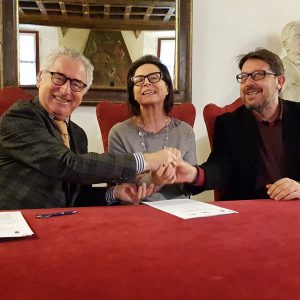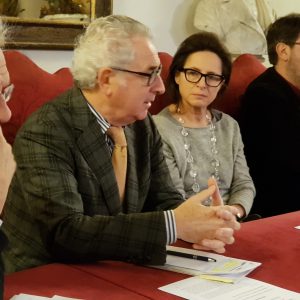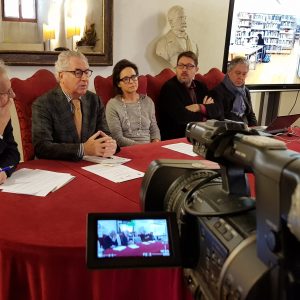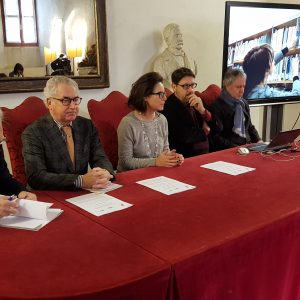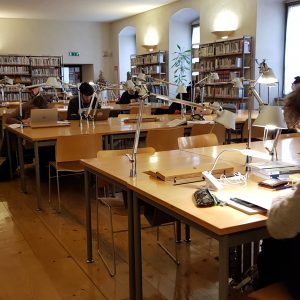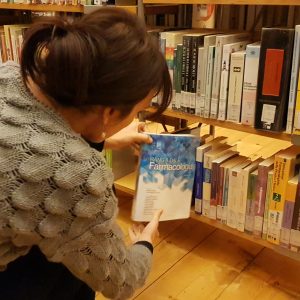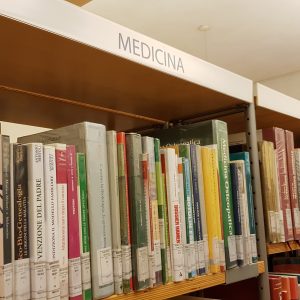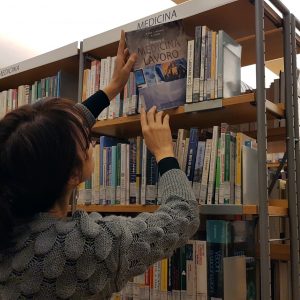Understanding is good for health
A declaration of intent to build a project of Public Health Literacy
Understanding is good for health, literally. Understanding what the doctor or another health professional tells us, reading a drug prescription or an information leaflet without having difficulty interpreting it, unraveling the broad information that the web offers us on health means avoiding easily understandable problems, which, sooner or later, we are all forced to face.
The Trento Public Library, Fondazione Bruno Kessler – “FBK for Health” and the Medical Association of Trento have developed a project on so-called health literacy, i.e. on “functional alphabetic competence” (literacy) that targets the medical-health field, to make communication clearer, simpler and more comprehensible to everyone, making sure that it really is.
Health literacy, first measured in the US in the 80s, is – according to the definition of the World Health Organization – the degree of ability of individuals to have access, understand and use information with methods needed to promote and maintain a good state of health.
Having good health literacy means having the skills to understand the treatment that is offered and to recognize one’s health needs, take greater control over the factors that affect health, actively contribute to therapy choices, being able to navigate the health system, adopt healthy behaviors , such as exercising and eating healthy foods. On the contrary, people with low health literacy are likely to have less access to screening services (such as mammograms, pap tests, flu shots), have little knowledge about their health and the disease management (eg diabetes, asthma, hypertension), have less ability to communicate symptoms of the disease and understand physicians’ explanations, have more difficulty reading and understanding information facts about drugs, their function and possible side effects (how much, when and how to take them), have a passive role in the decision-making process. Let’s just think, for instance, to the patient who must sign an informed consent before surgery and must understand the information, go through the risks, make important decisions for their health.
In recent years, the issue of the population’s health culture has gained increasing attention as a priority challenge in a world where medicine is evolving at a fast pace, health systems are becoming increasingly complex, the possibility to access health information through the Internet and in particular through social media are practically unlimited. This poses new and unprecedented issues, in connection with the reliability of information on health on the web and the dangerous spread of theories, treatments, remedies, fads that, although lacking the least scientific basis, enjoy widespread popularity and credibility. It becomes increasingly important to know how to tell information from disinformation with a careful and critical attitude.
Some studies have found that an appropriate health culture can significantly affect the improvement of health and well-being of citizens. In particular:
- approximately 40% of people aged 16 to 65 are unable to fully understand and use the health information provided by the media
- elderly patients with a low level of health culture are about twice as likely to die within 5 years compared to patients with a high level of health culture
- patients with a low level of healthcare culture are up to 3 times more likely to be hospitalized and have to access the hospital ER
- citizens with a low level of health culture do not use as much screening services with consequent late diagnosis
- the health consequences of a low level of citizens’ health culture produce measurable costs in 3-5% of the entire health system budget.
The project, which has a strongly cultural imprint, meets first of all the needs of patient-citizens, and takes on a wider approach. The idea underlying the declaration of intent signed today, which remains open to the participation of other stakeholders, is to go beyond the sector, creating opportunities for discussion and dialogue to grow a new social deontology in the community.
In short, the three general goals are as follows:
- to support and sensitize a public opinion that is informed, i.e. able to access the data relevant to make decisions related to one’s own health (with reference to public policies, to the use of drugs, to prevailing trends), to evaluate their reliability, to explore the possible consequences and to compare different information
- identify and experiment with possible actions that can be put in place to improve citizens’ health literacy
- support a collaborative and coordinated approach between the library, local research and training facilities, and the local health system to promote initiatives to improve health literacy.
Specifically, a series of tools have been prepared to be tested in the coming months, starting with a public seminar to be held in the library in March 2019: training courses on how to consult health texts and to browse dedicated sites, building a scientifically validated bibliography that can guide the reader towards texts verified by experts, editing and writing entries to enrich the information available on Wikipedia, improve the reading and interpretation of local health data. (s.d.t./m.l.)
Watch the story and the interviews with Corrado Bungaro (City of Trento councillor for culture), Marco Ioppi (Chair of the Association of Physicians) and Marco Clerici (FBK for health):
